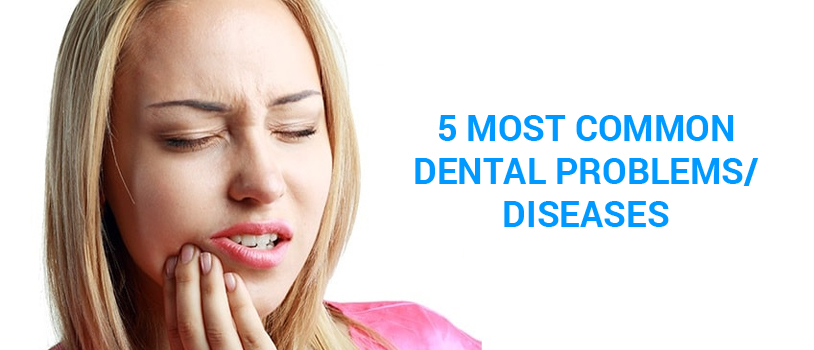Dental Cavities/ Dental Caries: Cavities, caries and tooth decay are interchangeable terms, though cavities (Same as dental caries) are a result of tooth decay. They refer to the destruction of tooth enamel, the tough, protective outer layer of a tooth. Cavities can also affect dentin, the soft, main tissue underneath. Simply speaking, decay is caused when starch and sugar stay on your teeth, and plaque, the mix of this food debris, saliva and bacteria dissolves the enamel. If you eat plenty of high-carb/ sugary foods, you are likely to get caries. Children and older adults are particularly prone to cavities, though anyone can get them.
Gum Disease/ Periodontal Disease This is a bacterial infection that begins with the inflammation of gums, and progresses to destroying the bone, gums & ligament that support teeth. Tooth loss occurs.
People usually take bleeding gums lightly, which is one of the early signs of gingivitis, the first stage of periodontal disease. The gums become inflamed, i.e. red and swollen. There is no damage to the bone or soft tissue yet. Gingivitis can be reversed through regular professional cleaning by a dentist, brushing at least twice a day, and daily flossing. When left untreated, it advances to the second stage, periodontitis.
The gums now begin to recede (pull away from teeth), resulting in the teeth looking longer. Not only do the gums recede, they also detach from the teeth, resulting in a space, or pocket being created. Bacteria grows in these pockets. Body’s immunity system releases substances to fight the bacteria, which along with bacterial toxins, results in bone and connective tissue loss.
To be continued…
Gum Disease/ Periodontal Disease This is a bacterial infection that begins with the inflammation of gums, and progresses to destroying the bone, gums & ligament that support teeth. Tooth loss occurs.
People usually take bleeding gums lightly, which is one of the early signs of gingivitis, the first stage of periodontal disease. The gums become inflamed, i.e. red and swollen. There is no damage to the bone or soft tissue yet. Gingivitis can be reversed through regular professional cleaning by a dentist, brushing at least twice a day, and daily flossing. When left untreated, it advances to the second stage, periodontitis.
The gums now begin to recede (pull away from teeth), resulting in the teeth looking longer. Not only do the gums recede, they also detach from the teeth, resulting in a space, or pocket being created. Bacteria grows in these pockets. Body’s immunity system releases substances to fight the bacteria, which along with bacterial toxins, results in bone and connective tissue loss.
To be continued…

